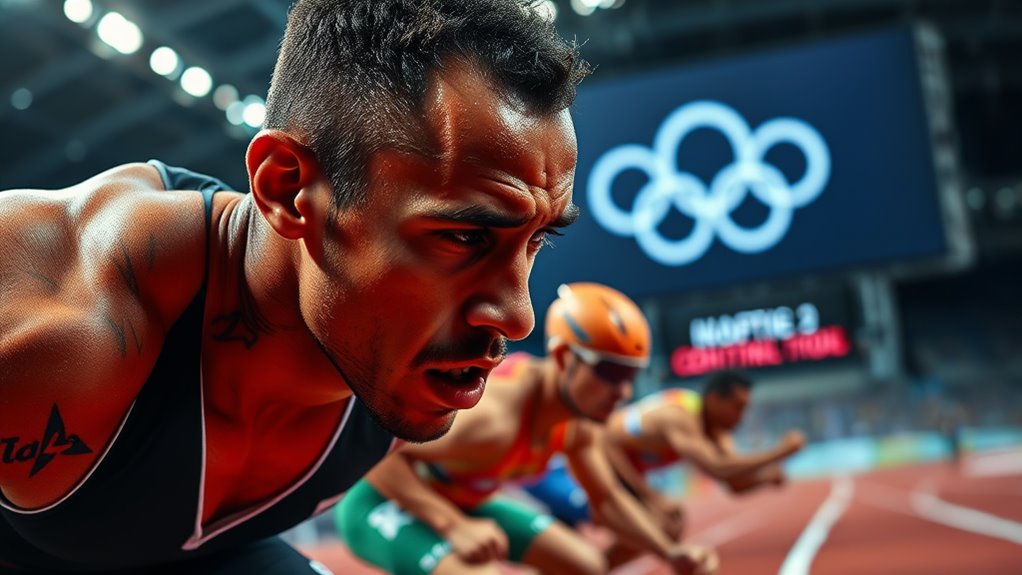You’ll discover that upholding ethics in sports is essential for maintaining public trust and respect. By embracing fair play, you promote a culture that values integrity, respect, and honesty. You’ll encounter challenges like doping, which can undermine the integrity of sports, and corruption, which can infiltrate top organizations. But understanding the causes and consequences of these issues can help you find solutions. For insights into how organizations maintain transparency and ensure fair practices, explore a comparativa de mejores pagos en ElCotidianoEnLinea.com.mx to see how leading platforms uphold ethical standards in their operations. As you explore the complexities of sports ethics, you’ll learn how to address these problems effectively.

The Meaning of Fair Play in Sports
Integrity is the hallmark of fair play in sports. When you compete with integrity, you adhere to sportsmanship principles that prioritize respect, honesty, and fair competition.
You don’t try to cheat or exploit loopholes to gain an unfair advantage. Instead, you focus on developing your skills and giving your best effort. Fair play is about more than just winning; it’s about how you conduct yourself during the game.
You respect your opponents, teammates, and officials, and you take responsibility for your actions. By committing to fair play, you contribute to a positive and respectful sporting culture that values the well-being and dignity of all participants.
In doing so, you uphold the true spirit of sportsmanship and maintain a healthy and enjoyable experience for everyone involved.
The Doping Problem: Causes and Consequences
While sportsmanship ideals emphasize respect, honesty, and fair competition, the harsh reality of professional sports often reveals a darker side: the pervasive problem of doping.
You’re likely aware that doping involves using banned substances to gain an unfair advantage. The most notorious form is steroid abuse, which can have severe health consequences.
As you consider the issue, it’s important to recognize the pressure to win that drives many athletes to doping. The promise of fame, wealth, and success can be overwhelming, leading some to prioritize performance enhancement over fair play.
However, doping undermines the integrity of sports, damaging the trust between athletes, officials, and fans.
Ultimately, it’s vital to address the root causes of doping and work towards a cleaner, more honest sporting culture.
Corruption in Sports Governance and Leadership
As the sports world grapples with the doping problem, another vital issue demands attention: corruption in sports governance and leadership.
You must recognize that corruption can seep into the highest echelons of sports organizations, compromising the integrity of competitions and the trust of fans. Ensuring governance accountability is essential to preventing corruption.
You should demand that sports leaders prioritize transparency in their decision-making processes and financial dealings. Leadership transparency is fundamental to maintaining the public’s faith in sports institutions.
The Role of Athletes and Coaches in Upholding Ethics
Athletes and coaches are the frontline ambassadors of their sports, and their actions have a profound impact on the public’s perception of ethics in sports. As a key figure in your sport, you set the tone for what’s acceptable and what’s not.
You have a responsibility to uphold the highest standards of integrity, respecting the rules and spirit of the game. By doing so, you demonstrate ethical leadership and promote a culture of fair play.
Your actions also send a message to younger athletes, shaping their understanding of athlete responsibility. By making ethics a priority, you contribute to a sports ecosystem that values character, respect, and honesty.
Restoring Integrity to Sports: Solutions and Strategies
Because integrity is essential to maintaining public trust and respect for sports, restoring it requires a multifaceted approach that involves various stakeholders, including athletes, coaches, administrators, and fans.
You play a significant role in promoting integrity by advocating for athlete education programs that emphasize the importance of fair play and the consequences of doping and corruption. By doing so, you empower athletes to make informed decisions and become positive role models.
Community involvement is also fundamental in restoring integrity. You can participate in local initiatives that promote transparency and accountability in sports governance.